
Regardless of what you’re going through in life or where you are, having people on your side helps more than almost anything else. This includes people who can encourage you and have your back and ideally at least one or two who have traveled the same road already and know how to do it well.
Caregivers struggle in this area. Friends and family may mean well, but most won’t have any sense of what caregiving truly feels like or how it can drain you day after day.
You can turn to forums and support groups as well. Yet, while these can be incredibly helpful, they may also bring you down at times, as members often struggle in the same ways as each other.
This is why, today, we’re talking about the best books on caring for aging parents. The right book gives you both support and advice, helping you to see that you’re not alone and to find ways of doing things better.
This list isn’t just a selection of random caregiving books.
Instead, every entry is special to us at Kapok and we’ve found plenty of gold in their pages. They’re also very different than each other. Some of these are books that help with caregiving challenges, while others target mental health, or help you consider the past.
Before We Begin
Our Top Books on Caring for Aging Parents
The Conscious Caregiver
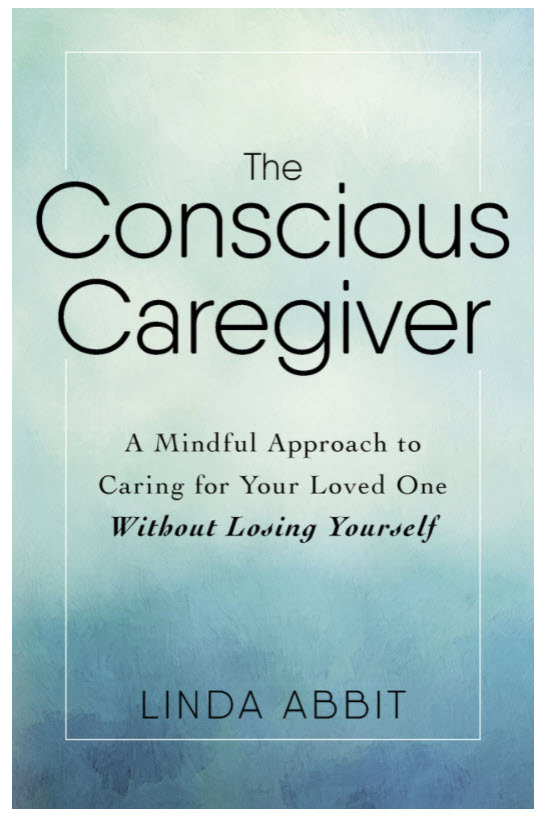
As you can probably guess, this book takes a mindfulness approach to caregiving. It even has the subtitle: A Mindful Approach to Caring for Your Loved One Without Losing Yourself.
While mindfulness sounds a bit New Agey at times, there’s growing evidence that it can be powerful for improving mental health. It can be particularly relevant in stressful situations.
It’s also an idea that I’ve tapped into myself and written about on this blog.
There are many amazing books and audiobooks that talk about mindfulness, not to mention apps to help you practice the approach. However, it’s rare to find an author that combines mindfulness and caregiving.
In this book, Linda Abbit doesn’t just combine these two important ideas, but she does so well.
Setting Boundaries with Your Aging Parents by Allison Bottke
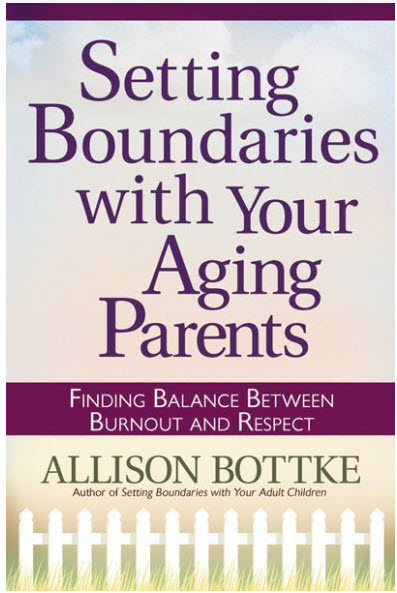
Every caregiver should read at least one good book on boundaries. The topic is essential and easily missed, especially when you’re supporting your parents.
How do you support the people you love while still maintaining your own sense of self? How do you make sure your needs are still met? Boundaries is a huge part of that equation.
There are many good boundaries books out there. This one, by Allison Bottke, stands out because it specifically focuses on setting boundaries with aging parents. As part of it, she provides examples about why a lack of boundaries doesn’t work, along with steps for drawing healthy boundaries.
Now, I’ll be honest, the style of this book won’t appeal to everyone. Like the Boundaries book by Cloud and Townsend, Bottke takes a strongly faith-based approach to the topic of boundaries. You might also need to wade through parts, as she can get a bit wordy.
Even so, I recommend starting with this book before turning to others (like Set Boundaries, Find Peace by Nedra Tawwab or Unf*ck Your Boundaries by Faith Harper) because most other boundaries books don’t account for the complexities of caregiving. After all, setting firm boundaries can be difficult when someone is physically dependent on you.
The 36 Hour Day by Nancy Mace and Peter Rabins
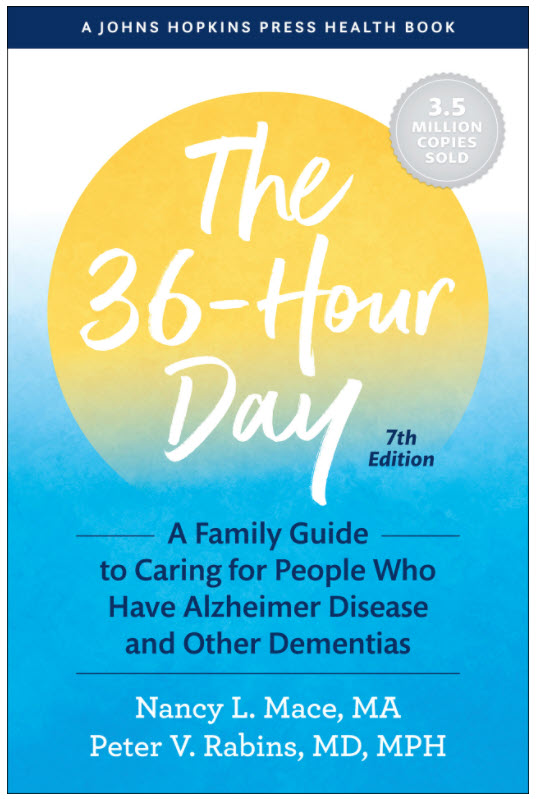
This book focuses on caring for family members with Alzheimer’s disease and other types of dementia. It’s a useful examination of what dementia behaviors look like, what you can expect, and how caring for someone with dementia may affect you.
The book is currently in its 7th edition, as it is regularly updated with recent research and information.
The 36 Hour Day is somewhat information-dense and repetitive. It also covers the full range of dementia symptoms, which makes it an emotional read if your aging parent is in the early stages of dementia. Still, having a book like this on hand as a reference can be incredibly powerful and you can always read it in stages, rather than all at once.
Making Tough Decisions About End-of-Life Care in Dementia: A 36-Hour Day Book
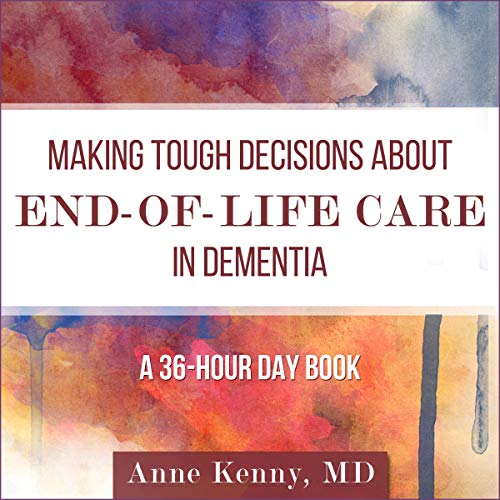
I listened to this one as an audiobook and was very impressed by it. Anne Kenny talks about some of the hardest aspects of dementia, including the way the disease progresses and the many challenging decisions that need to be made.
Part of the discussion highlights the difference between prolonging life at all cost and allowing someone to die in a more natural and graceful way. Anne Kenny recognizes that the decisions will be influenced by the values of all involved and the specific situation.
There are many other fascinating discussions, including ways to bridge differences between family members and why it’s important to start talking about the difficult decisions long before they need to be made.
I also loved how Anne Kenny talks about how full-time dementia caregivers can get caught up in the day-to-day decisions of the role (which are often challenging and exhausting), to the point that they have nothing left to think about the future.
This book is gut-wrenching at times and sometimes needs to be taken in small doses. It’s incredibly valuable information though – especially as you get a sense of what comes next and the decisions you’ll need to make before you need to do so.
Who Is This For? Caregivers and family members of a dementia patient who want to understand the difficult decisions that come up at the end of life.
How to Earn as a Caregiver
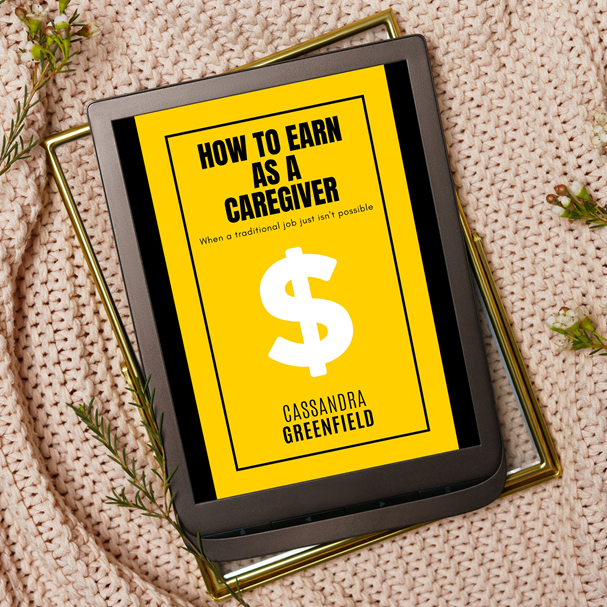
Caregivers often struggle financially. That’s a small wonder, as you may be paying more to help support your loved one, like extra gas costs, contributing to their bills, buying more food, and unexpected medical supplies.
Your income tends to suffer as well. For example, you might need to decrease your hours, take unpaid time off, or even move from full-time to part-time work.
This eBook offers alternative ideas for making money – including many ways that you can make money from home, even if you’re a full-time caregiver. I’m not just talking about finding a regular job that lets you work from home either. That’s one option, but there are plenty of other approaches as well.
The book comes from my own experiences at working online and research I’ve conducted over the years. It includes detailed discussions about what works, what to watch out for, and the pros and cons of different approaches.
Creating Moments of Joy by Jolene Brackey
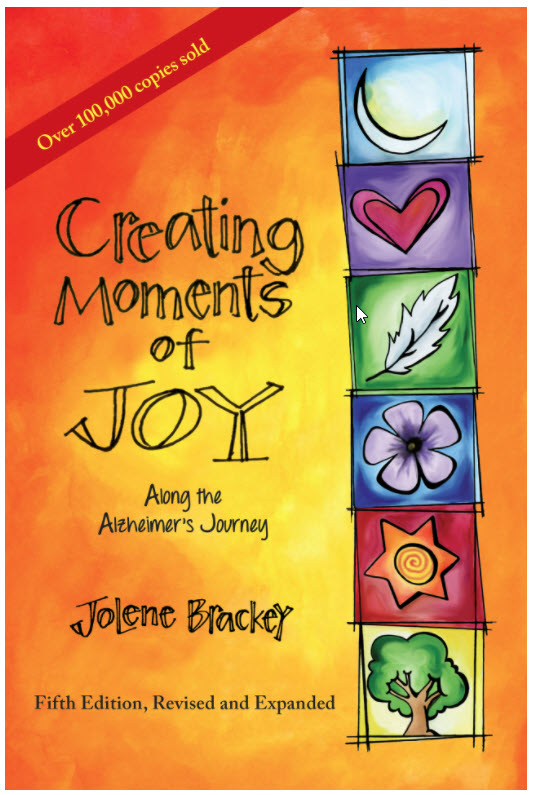
Like The 36 Hour Day, this book tackles Alzheimer’s caregiving. However, there are few similarities between the two books.
Creating Moments of Joy does exactly what the name suggests, helps you to find joy and positive moments within the journey of caring for someone with dementia.
That idea might sound somewhat crazy, yet it works surprisingly well in many situations.
After all, it’s very easy to get lost in the negative stories of your situation and focus on what you have lost. Doing so is completely understandable but doesn’t help you to deal with the day-to-day emotional challenges of dementia caregiving. Some of the approaches in this book may offer just enough change and inspiration.
What I Wish People Knew About Dementia: From Someone Who Knows
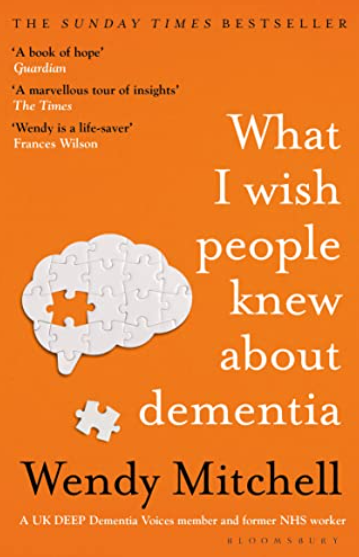
Wendy Mitchel has written two unique books on dementia. The first, Someone I Used to Know, was published in 2018 and provides many details of Wendy Mitchell’s journey, including her initial diagnosis of early onset dementia in 2014 and the way the disease changed her world.
The second book What I Wish People Knew About Dementia was published in 2022.
While Wendy’s condition deteriorated notably between the two books, this second book is still well written and fascinating. I also think it’s the more helpful of the two books, as the individual chapters focus on different changes that people experience when living with dementia, including how senses differ, the impacts on relationships, communication, and emotions.
What Wendy offers, more than anything else, is insight into a complex condition.
Her discussions help explain why dementia patients respond in the way they do, including what things look like and feel like.
She does offer some practical tips for caregivers and facilities too, but this isn’t the emphasis of the book.
There’s one more crucial thing – Wendy’s emphasis is always on living with dementia. This includes talking about how the disease has a beginning, a middle, and an end, and that there are still many good moments and much life to be lived.
This is a delightful contrast to all the heavily negative narratives on dementia. There are practical benefits to this emphasis too, as a positive attitude often leads to a more positive and healthier life, perhaps even for people with dementia.
Who Is This For? People who want to understand more about the dementia experience, particularly if a loved one has been diagnosed.
Take Back Your Life by Loren Gelberg-Goff
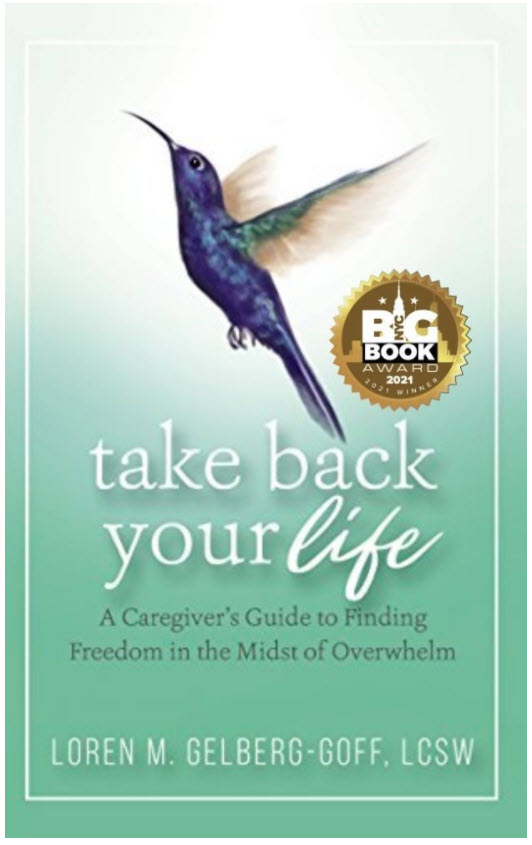
This book has the subtitle: A Caregiver’s Guide to Finding Freedom in the Midst of Overwhelm, which sums it up nicely.
What I love is that Gelberg-Goff provides personal examples of her experiences of caregiving, but regularly comes back to techniques and specific advice that can help people. She doesn’t get lost in her stories and examples like some authors do.
How to Care for Aging Parents by Virginia Morris
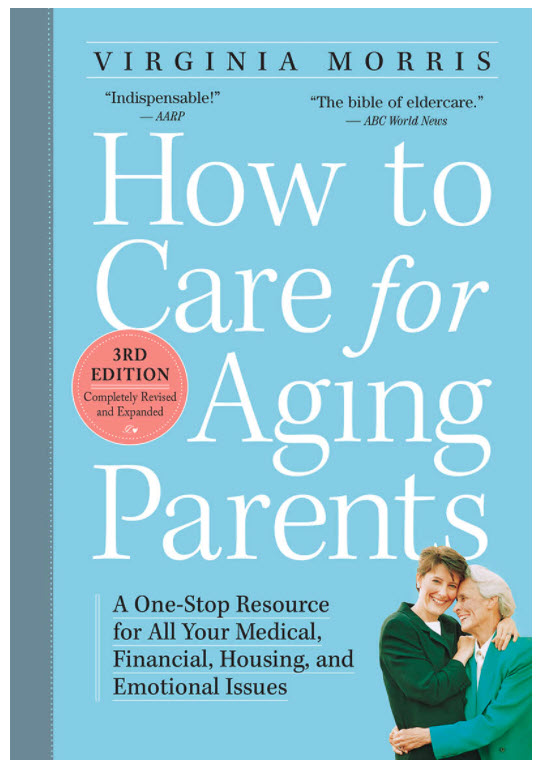
The previous example focused strongly on the emotional and psychological side of caregiving. This one has a more practical emphasis instead. It is broken down into sections that address major considerations, including new roles, daily living, medicine, paperwork, where your aging parents live, what happens with dementia, and end of life considerations.
The book shines in that it gives you a roadmap of what to expect and plenty of practical advice. The clear sectioning makes it easy to jump to the part of the book that you’re interested in.
As with most such books, this is a relatively general guide to caring for aging parents, so some pieces of advice will apply to you better than others. Even so, there’s plenty of information to choose from, so you’re certain to find a few good pieces.
The Multicultural Guide to Caregiving
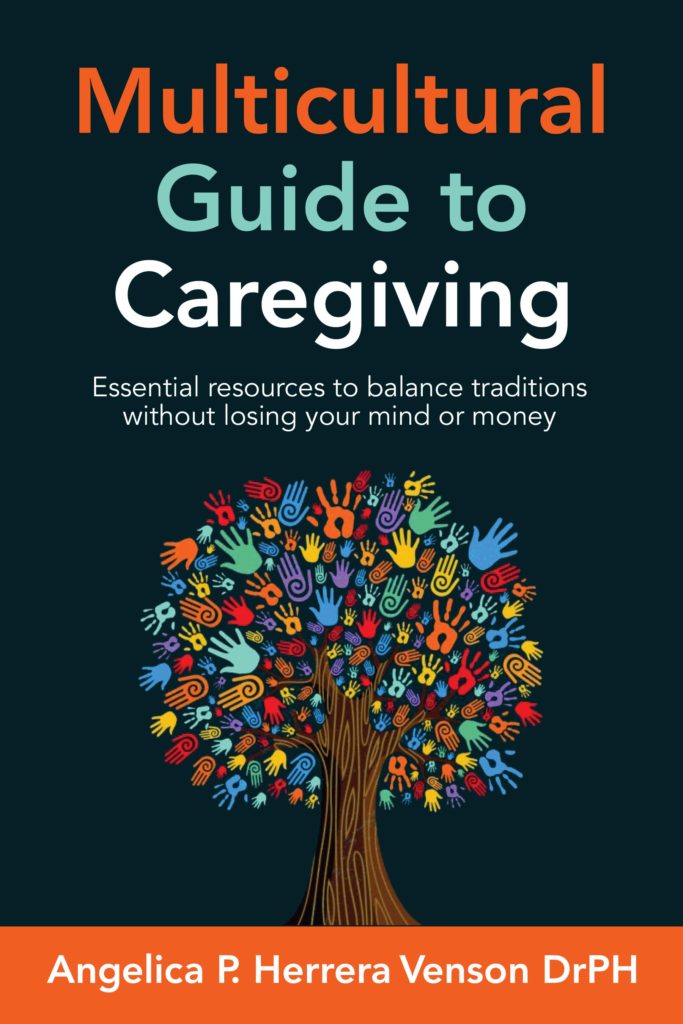
We can’t talk about the best books on caring for aging parents without talking about our own – the Multicultural Guide to Caregiving.
As the name suggests, this book doesn’t just talk about caregiving, it also takes a close look at the experiences of multicultural families in America. Discussions focus on a variety of topics, including myths about aging care, the financial challenges you may face, and how to plan for the future.
Where the Light Gets In
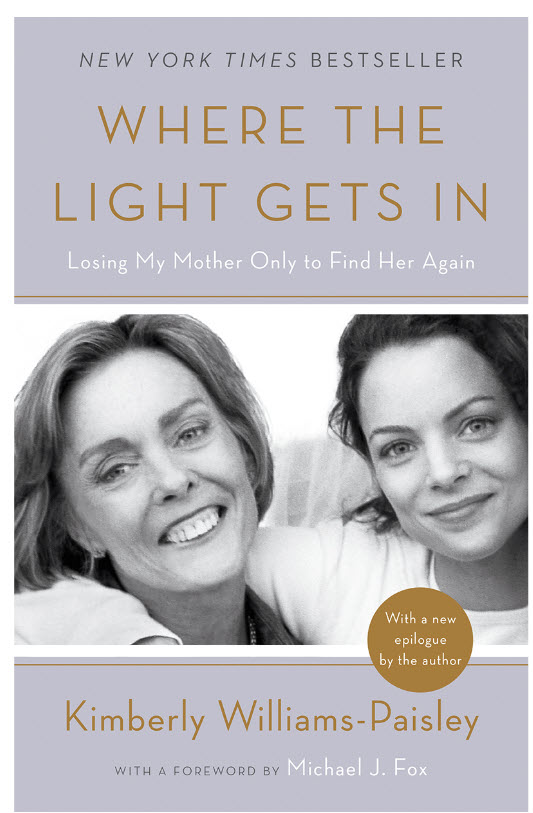
Unlike most other books on this list, Where the Light Gets In wasn’t written as a teaching book.
Instead, it’s a personal story about Kimberly Williams-Paisley’s experiences with her mother’s dementia. It’s a beautiful book and one of the few that places the challenges of dementia in a broader context. I particularly love the way that Kimberly manages to find moments of connection, even in the later stages of the condition.
That said, this isn’t the story about dementia caregiving and Kimberly wasn’t even her mother’s primary caregiver. Nor is it even really a story about Kimberly’s mother.
It’s mostly a story of relationship and connection instead, along with how this changes with a dementia diagnosis. This focus is powerful for the right person in the right situation, but won’t work well for everyone.
Personally, I loved it.
This is also a very good book if you want to learn more about dementia without being overwhelmed. After all, other books on dementia are often very intense.
Going Beyond Books About Caregiving
The books I’ve talked about so far are all written for caregivers, but they’re not the only option. Sometimes the best books for caregivers aren’t written about aging parents at all. Instead, they have completely different angles.
This isn’t bad though. While there are plenty of interesting books on caring for aging parents, many of them are strongly focused on the caregiving side of the equation.
That’s not surprising, right, that caregiving books focus on caregiving?
However, you’re not a caregiver. You’re so much more than that.
The books below are my personal favorites. Ones that I’ve turned to time and time again for my own growth, for research, and for writing here at Kapok. They offer precious insights, some of which have changed my approach to life.
The Mindful Self-Compassion Workbook by Kristen Neff
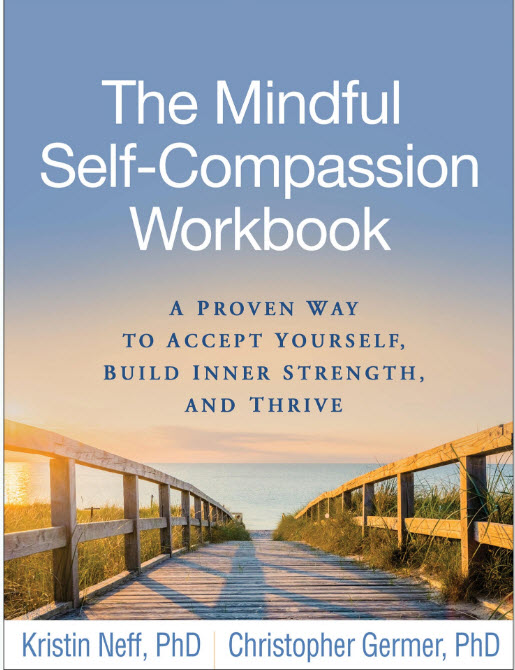
Kristin Neff is the expert in self-compassion. She has many books on the topic, as well as audio exercises, TED talks, YouTube videos, and her own self-compassion website.
While she’s not the only author in this field, her work is an excellent place to begin.
The most exciting part of the Mindful Self-Compassion Workbook is obvious from the name – this is a workbook. As a result, there are plenty of questions and exercises, along with spaces to write your responses.
This style also helps to break the book up and make it less information dense than some of Kirsten Neff’s other books.
Kirstin Neff does also have a more recent book called Fierce Self Compassion. However, as I’ll discuss later, this one isn’t as helpful for caregivers as the name suggests.
When Life Hits Hard by Dr. Russ Harris
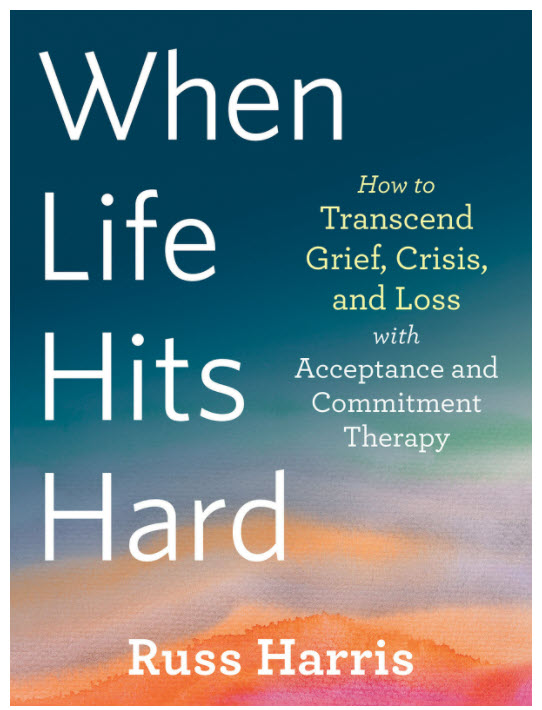
Depending on where you live, you may see this book called The Reality Slap or When Life Hits Hard. I read The Reality Slap version when I reviewed the book, as that’s what it’s called in my corner of the world (I live in New Zealand).
Both versions of the book cover the same material. The underlying model is called Acceptance and Commitment Therapy (ACT). It’s an approach that combines aspects of mindfulness with the importance of making change and techniques for how to do so.
I love that the book focuses on how to do well when life sucks, rather than assuming that life is normal.
Most of the time, Dr. Harris focuses on one-time reality slaps, like when a loved one dies. However, the principles apply to ongoing situations like caregiving as well.
Unf#ck Your Brain by Dr. Faith G Harper
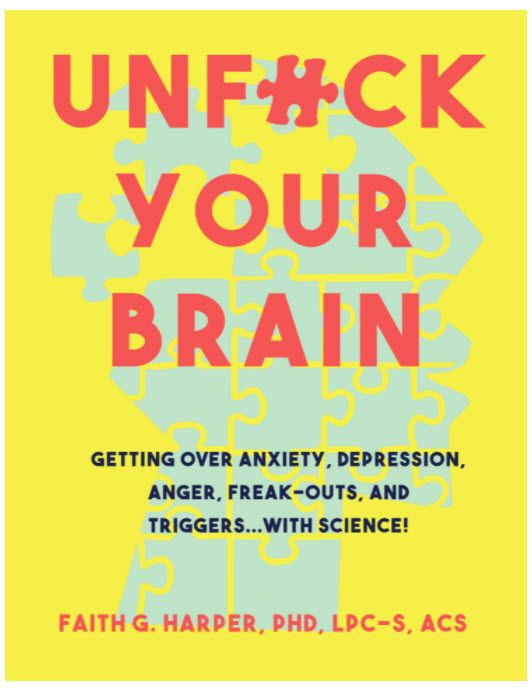
The title of this book should tell you all there is to know about the writing style. It’s a style that some people will love and others won’t be able to stand (a pattern that’s reflected in reviews for the book).
I enjoyed it, personally. The writing is refreshingly blunt, which makes the concepts easier to understand and the book surprisingly fun to read.
Well… I listened to the audiobook for this one, actually, narrated by Dr. Harper herself. It was the only book in the self-help field that I’ve found entertaining.
What I love most about this book is the straightforward, no-nonsense approach to finding solutions. Dr. Harper is interested in what works and that’s powerful.
She also focuses a lot on teaching you the why. Specifically, why your brain does what it does – with the theory that it is easier to change things if you first know why they happen.
Now, this book doesn’t have anything to do with aging parents or caregiving.
It’s still relevant, though. For one thing, understanding your reactions and finding ways to improve them can help you to deal better with your aging parents. You may be able to make better decisions, to draw clearer boundaries, and to see your own needs more clearly.
Emotionally Immature Parents
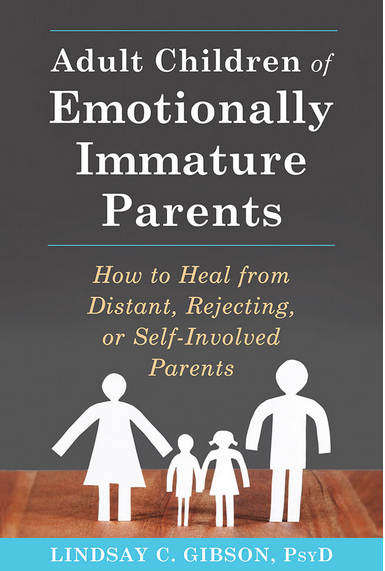
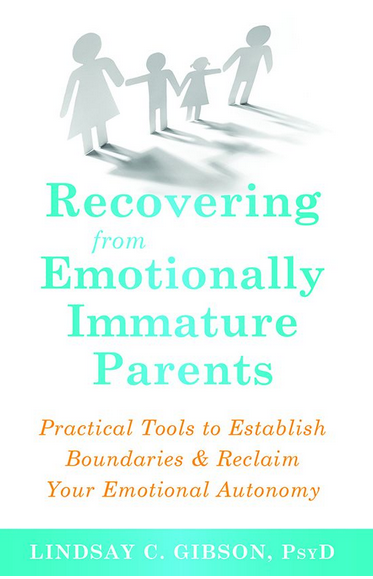
There are two books here, both from Dr. Lindsay Gibson. One is called Adult Children of Emotionally Immature Parents, while the other is Recovering from Emotionally Immature Parents. I’ve reviewed both of these in the past as well.
Now, these books don’t apply to every situation.
However, they could be some of the most influential books for people who don’t have a good relationship with their parents. In particular, the books help you to accept and love your parents, while also working out how to respond to them.
Even more importantly, the books help you to see your own reactions clearly and learn to love yourself. The information provided can be incredibly important for boundary setting and developing independence.
Keep Moving: And Other Tips and Truths About Aging
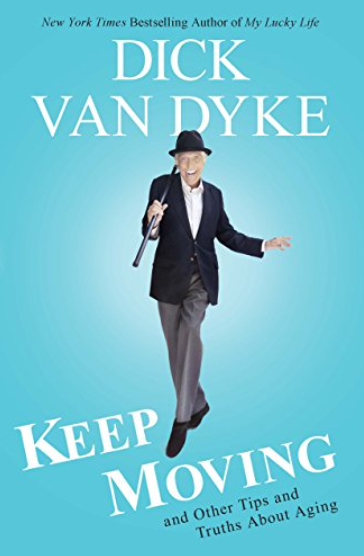
This book is an interesting addition to the list.
First, the book really doesn’t live up to its name, as it doesn’t really offer much practical advice about aging. Most of the tips that Dick Van Dyke does offer, like “keep moving” are incredibly obvious.
He’s also a pretty healthy, active, and financially stable 90-odd year old man married to a 50-odd year old wife. So, not surprisingly, some of his advice won’t work well for everyone.
Despite this, I highly recommend the book.
I do so because this is a light hearted and positive book that takes some of the sting out of aging. Dick Van Dyke’s positivity about growing old is a delightful contrast to all the negativity in the world today.
Who Is This For? For anyone who needs a little levity and some good news in their life, particularly those who are often very negative about aging.
Difficult Conversations, How to Discuss What Matters Most
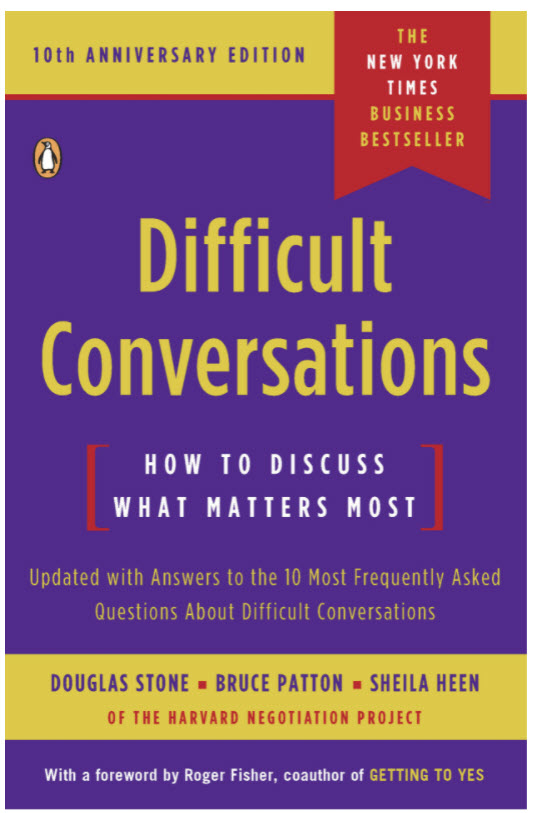
There are many books on difficult conversations, but Difficult Conversations by Douglas Stone, Bruce Patton, and Sheila Heen is my favorite (despite the unattractive cover). I think it really is one of the best books on caring for aging parents – even though it never talks about caregiving at all.
I love that the book is packed full of examples and techniques, giving you a sense of where problems with conversations can come from and how to deal with them practically.
Another fantastic thing is the way the book is organized. It starts talking about how conversations go wrong, then moves into the idea of learning stances and learning conversations.
The updated version of the book includes answers to the 10 most frequently asked questions on the topic.
Some reviewers mention that the information is basic, but that really depends on what you’ve read in the past. I suspect that most caregivers would find the level of information exactly right. I know I did.
Other Books to Consider
The highlighted books are my favorites thus far. However, I’ve also come across plenty of others that can be helpful in the right situations.
- Fierce Self-Compassion. Published in 2021, this is the latest self-compassion book by Kristen Neff. In it, she highlights the importance of fierceness, defending our own boundaries, and fighting for what’s right. While there are some important ideas, the book itself is quite political and can be a difficult read. Kristen Neff also focuses heavily on why fierce self-compassion is needed, with much less information on how to practice self-compassion and when doing so is appropriate.
- The Third Space. This book talks about the transitions in our lives and how we can use these well to be less stressed, happier, and more present. Dr. Adam Fraser makes some excellent points, but his strong focus on the work to hope transition gets tiring. I recommend checking out his TED Talk instead. This provides much of the same information and is much less repetitive.
- How Emotions Are Made. This is actually my single favorite book on this page. It didn’t make the main list, though, as it is much more academic than it is practical. It also isn’t a caregiving book. Still, the book can be helpful, as it offers a different perspective on what emotions are, which can change the way that you respond to them.
Final Thoughts
Over the years, I’ve read many self-help and caregiving books. The ones featured on this list of best books on caring for aging parents are the ones I’ve had the most positive experiences with. They’re well written, have plenty of examples and (for the most part) aren’t too preachy about imparting advice.
Of course, there are plenty of other books out there too.
So, let’s throw this open. What are your recommendations? What books have changed your life? They don’t need to be books about caregiving either. Anything that helped you to grow as a person is relevant. Please leave a comment below or send us an email if you have a book that you think belongs on this list.

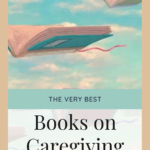
Thanks. Is there book for intercontinental short term tour for multicultural seniors with Indonesian maid whom they are emotionally attached to?